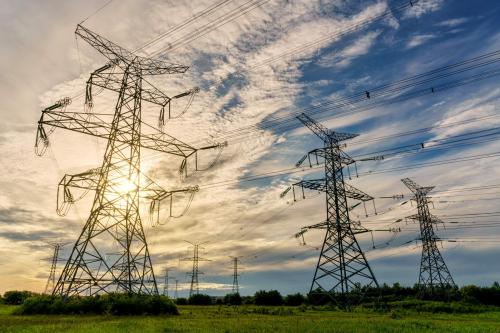

6:00 pm EDT - 9:00 pm EDT
Past Event
In its seventh session, the Crisis in the Middle East Task Force addressed the topic “Is Energy Independence the Answer to the Problems of the Middle East?” This session, hosted by the Saban Center for Middle East Policy on March 13, 2008, considered both the possibilities and the ramifications of decreasing U.S. dependence on Middle Eastern oil.
Participants argued that it would take the United States about two decades to make a major shift away from oil. However, the need for this over the long-term was recognized. One participant said that by 2020 there would be a very small margin between the supply and demand of oil and that this would create pressure for alternative energy sources. Another participant detailed the importance of developing ways for the United States to be less reliant on oil. Oil is central to both the U.S. and the world economy; in particular, the U.S. transportation system is powered almost entirely by petroleum and this leaves the United States dependant on the oil-producing countries. Furthermore, participants argued that dependence on Middle Eastern oil is slated to increase as the region will have an increasingly large share of the world’s oil over time. While agreeing with this trend in general, one participant noted that the United States gets increased oil from Canada’s oil sands while exports from Saudi Arabia have decreased in recent years. The United States also extracts oil from the Gulf of Mexico’s deep water.
There are a variety of ways to decrease U.S. reliance on oil. One participant advocated ensuring that cars sold in the United States are equipped to run both on gasoline and via another means, such as electricity which the United States has in abundance domestically. This participant argued that making cars that can run on gasoline and alcohol is incredibly inexpensive, costing only about an extra one hundred dollars per car. Despite the headlines that ethanol gets, there are actually many substances that can be used as oil substitutes, including methanol, coal, and natural gas liquids. Another participant commented that the prospects for change in the U.S. approach to energy are good because of the strong bipartisan support for energy independence.
Participants considered the benefits of increased energy independence for the United States. One participant argued that diversifying fuel sources would enable the United States to draw resources from locations outside of the Middle East, thus contributing to the development of poorer countries, fostering positive relations between those countries and the United States and increasing U.S. flexibility in case the political situation in the Middle East requires it in the future. One participant asked whether there would be less interest in energy independence in the wake of a solution to the Israeli-Palestinian conflict. Another participant responded that disruptions in the flow of oil generally stem from tensions in the Persian Gulf and that this was a broader issue.
However, participants were also skeptical about the extent to which decreased dependence on Middle Eastern oil would change U.S. concerns about the Middle East. One participant explained that the Middle East still has an important location at the center of three continents and that the U.S. will continue to have strategic interests there including countering Iranian threats to regional stability and maintaining Israel’s security. Furthermore, another participant highlighted that the United States is not the only relevant actor here. Even if the United States was energy independent and therefore did not need stability in the Middle East for its energy supply, other countries like India and China would have interests in stability and thus the United States would continue to share these interests even if indirectly.
Furthermore, participants also noted environmental problems with some of the alternative energy sources. Making coal into fuel is particularly problematic and use of the Canadian oil sands also causes environmental destruction.
Participants also looked at the impact that energy independence would have on countries in the Middle East, with some arguing that there was enough time to wean Middle Eastern countries off of oil slowly without creating problems. It was argued that most Gulf states, having internalized their mistakes from squandering the last oil boom and with an eye to the future, are developing their economies and that both oil states and non-oil states were undergoing economic reforms. However, it was also argued that despite these improvements, their strategies are not having the desired economic impacts; for instance, in Saudi Arabia, the oil boom is not benefiting the middle and lower classes.
Concerns were raised about how decreased usage of Middle Eastern oil would impact the populous, poor states in the region which rely on money generated by oil whether in the form of oil remittances or investments from oil-producing states. One participant highlighted the extremely large investments being made by the United Arab Emirates in poorer countries like Egypt. This participant suggested that through this mechanism, U.S. dependence on oil may actually promote regional stability because it enables the oil-rich countries to fund development in poorer countries.
This strategy was critiqued as many of the jobs created through these investments go to foreign laborers and many of the projects created do not make a lasting contribution to economic stimulation. It was suggested that the investments could be improved for development and that a new Presidential administration in Washington could put pressure on oil-rich countries to make investments that would better strengthen the stability of the Middle East even if they are not as economically lucrative for the governments sponsoring them.

Robin Brooks
April 11, 2024

March 6, 2024

Jonathan Wilkinson
March 6, 2024